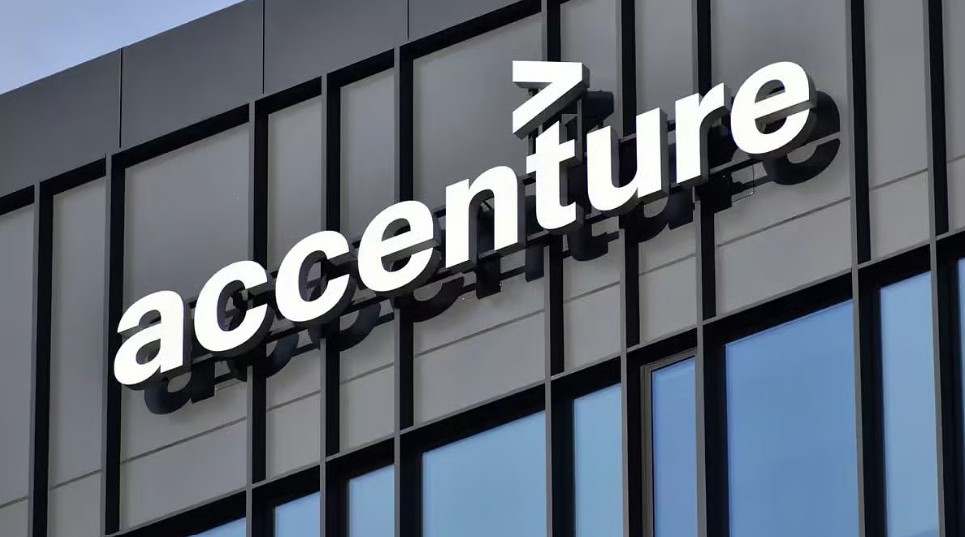Toppe Consulting – Your Source for Digital News & Trends in the Legal Industry
The consulting industry witnessed a seismic shift in September 2025 when Accenture announced layoffs affecting more than 11,000 employees over three months—the most aggressive workforce reduction in the firm’s recent history. Between May and August, the global IT consulting giant’s headcount plummeted from 791,000 to 779,000 employees, marking a dramatic pivot that signals fundamental changes in how professional services firms operate, compete, and deliver value to clients.
This isn’t simply another round of cost-cutting during economic uncertainty. CEO Julie Sweet stated explicitly during the company’s Q4 earnings call that the restructuring addresses “rapid AI adoption and declining demand for conventional consulting.” The $865 million severance program, with additional layoffs continuing through November 2025, represents Accenture’s calculated bet that artificial intelligence will replace rather than merely augment traditional consulting work. The message to the broader industry is unmistakable: adapt to AI-driven service delivery or face obsolescence.
Accenture reported robust 7% year-on-year revenue growth to $17.6 billion in the June-August quarter, demonstrating that workforce reductions stem from strategic transformation rather than financial distress Tech.co. The company simultaneously invested heavily in AI capabilities, training 70,000 employees in agentic AI technologies while doubling its AI and data specialists to 77,000 since 2023. This duality—strong revenue performance alongside aggressive workforce reduction—reveals a fundamental recalibration of the consulting business model where human capital increasingly competes directly with algorithmic solutions.
The Economics Behind the Transformation
Traditional consulting models depend on billable hours, with firms profiting from the spread between consultant salaries and client fees. This labor-intensive approach thrives during periods of strong client demand and tight labor markets but becomes vulnerable when AI tools can perform analysis, generate recommendations, and even draft deliverables at a fraction of human cost. Accenture’s restructuring acknowledges this uncomfortable reality: much of what consultants historically provided can now be automated or significantly accelerated through AI platforms.
The financial incentives driving this transformation are substantial. The restructuring program is projected to save Accenture over $1 billion once completed, with $615 million in severance charges recorded in Q4 fiscal 2025 and an additional $250 million expected in Q1 fiscal 2026 Tech.co. These savings flow directly to profit margins as AI tools require minimal incremental cost once implemented, unlike human consultants who demand salaries, benefits, training, and career development regardless of utilization rates.
Accenture’s financial performance validates this strategic direction. The company generated $2.6 billion in AI consulting revenue over six months while simultaneously reducing headcount, demonstrating that clients will pay for AI-enabled services even as firms deploy fewer consultants on engagements. This dynamic creates a virtuous cycle for firms that successfully execute the transition: higher margins, competitive pricing advantages, and improved scalability without proportional workforce expansion.
What “Reskilling” Really Means in Practice
Sweet’s comments about “exiting people where reskilling is not a viable path” reveal the brutal calculus underlying workforce decisions. Consulting firms historically invested heavily in training employees on new methodologies, technologies, and industry domains, confident that improved capabilities would generate billable revenue. AI disrupts this equation by reducing the time required to master many skills and by automating tasks that previously required years of experience.
The reskilling challenge extends beyond technical training. Consultants must transition from performing analytical work to orchestrating AI systems, interpreting algorithmic outputs, and delivering strategic insights that AI cannot generate independently. This requires fundamentally different competencies: understanding AI capabilities and limitations, designing effective prompts and validation frameworks, and communicating complex AI-generated insights to skeptical clients. Many mid-career consultants who excel at traditional deliverables lack these emerging skills and face limited pathways to develop them quickly enough to justify continued employment.
The consulting industry’s approach to workforce flexibility has changed dramatically, with Accenture reducing “bench time”—the period consultants can spend networking between projects—to just four weeks, a move described as “unprecedented” by industry analysts who noted that similar restrictions didn’t occur even during the 2008-2009 financial crisis HR Brew. This compression of grace periods indicates firms expect AI tools to absorb workload fluctuations that previously required maintaining larger consultant pools as buffers against demand variability.
Cascading Effects Across the Consulting Ecosystem
Accenture’s transformation reverberates throughout the professional services industry. The company’s scale—nearly 780,000 employees globally—means its strategic decisions influence competitive dynamics industry-wide. Smaller consulting firms cannot match Accenture’s investments in AI development and implementation, potentially disadvantaging them unless they identify specialized niches where human expertise remains essential and defensible against automation.
The talent market for consulting professionals faces disruption as thousands of experienced consultants suddenly compete for positions at firms still maintaining traditional models or in corporate roles. Understanding The Consulting Talent Exodus: Where 15,000+ Big Four Consultants Are Heading Next provides essential context for how this displaced talent is reshaping competitive dynamics across multiple industries and creating both opportunities and challenges for organizations seeking strategic advantage during this transition.
This displaced talent possesses valuable skills but may require significant reskilling to remain competitive in an AI-augmented environment. Organizations that successfully integrate these professionals while transitioning them to AI-enabled work gain competitive advantages, while those that simply maintain traditional approaches risk becoming uncompetitive on both cost and delivery speed.
Client expectations are shifting in response to these industry changes. Companies that previously accepted multi-week timelines for analysis and recommendations now expect AI-accelerated deliverables in days or even hours. The consulting firms that survive and thrive will be those that leverage AI to dramatically compress delivery timelines while maintaining or improving output quality. This compression fundamentally changes project economics, potentially reducing total engagement values even as firms improve margins through lower labor intensity.
Strategic Implications for Professional Services Buyers
Organizations purchasing consulting services face a critical juncture in vendor management and service delivery expectations. The traditional approach of evaluating consultants primarily on credentials, experience, and methodological frameworks must evolve to assess AI capabilities, data security protocols, and algorithmic transparency. Clients need to understand how consulting firms are integrating AI into deliverables and ensure that automation doesn’t compromise quality or introduce unacceptable risks.
The broader industry disruption extends beyond AI transformation. As detailed in The $65 Billion Federal Contract Crackdown Reshaping America’s Consulting Industry, government policy changes compound market pressures facing major consulting firms, forcing simultaneous adaptation to technological change, regulatory scrutiny, and evolving client expectations across both public and private sectors.
The pricing models for consulting services are undergoing fundamental restructuring. Hourly billing becomes problematic when AI dramatically reduces time requirements, potentially decimating engagement values. Forward-thinking firms are shifting to value-based pricing, outcome-based fees, or subscription models that decouple revenue from labor hours. Clients should expect and encourage these pricing innovations while demanding transparency about how AI is being deployed and whether cost savings from automation are being shared appropriately.
Toppe Consulting: Your Partner in Strategic Transformation
At Toppe Consulting, we understand that technology transformation requires more than implementing new systems—it demands strategic insight, deep expertise, and commitment to delivering measurable results. While the consulting industry undergoes dramatic change, our focus remains constant: helping clients achieve their most critical business objectives through innovative solutions and proven methodologies.
Our Services Include:
- Law Firm Website Development – Custom digital solutions designed specifically for legal practices seeking competitive advantage through superior online presence
- Strategic Technology Consulting – Expert guidance on leveraging emerging technologies to drive business transformation and operational excellence
Ready to Transform Your Organization? Contact Us to discuss how Toppe Consulting can help you navigate industry disruption while capitalizing on opportunities created by technological change.
About the Author
Jim Toppe is the founder of Toppe Consulting, a digital marketing agency specializing in law firms. He holds a Master of Science in Management from Clemson University and teaches Business Law at Greenville Technical College. Jim also serves as publisher and editor for South Carolina Manufacturing, a digital magazine. His unique background combines legal knowledge with digital marketing expertise to help attorneys grow their practices through compliant, results-driven strategies.
Works Cited
“Accenture Makes Room for AI With Thousands of Layoffs.” Tech.co, 27 Sept. 2025, tech.co/news/accenture-layoffs-ai-pivot. Accessed 28 Oct. 2025.
Vinopal, Courtney. “What Layoffs at Consultancies like Deloitte Mean for Recruiters.” HR Brew, 11 Apr. 2025, www.hr-brew.com/stories/2025/04/11/what-layoffs-at-consultancies-like-deloitte-mean-for-recruiters. Accessed 28 Oct. 2025.




